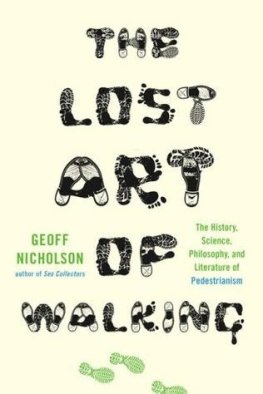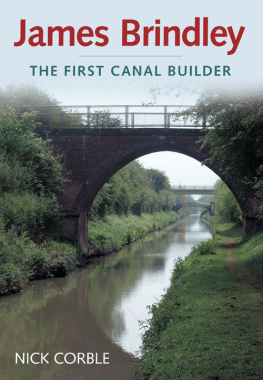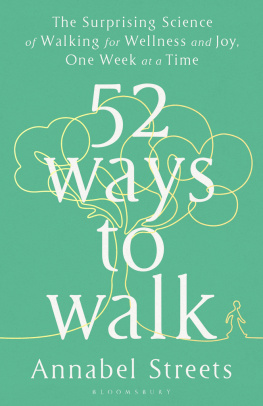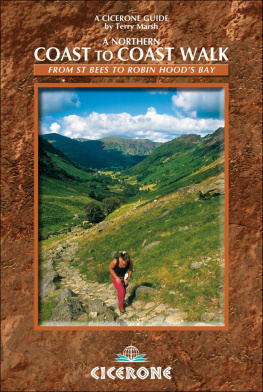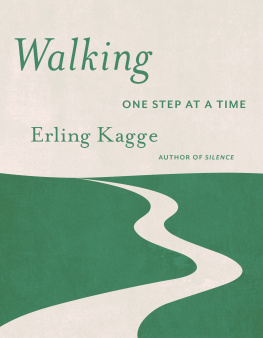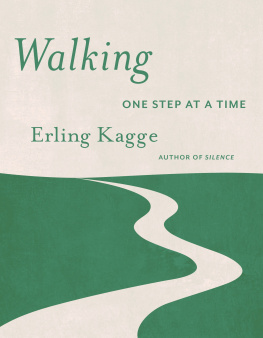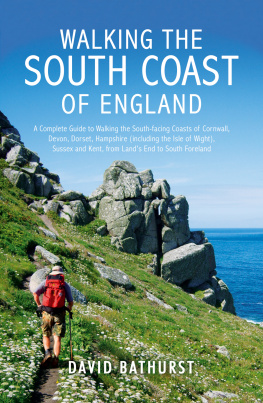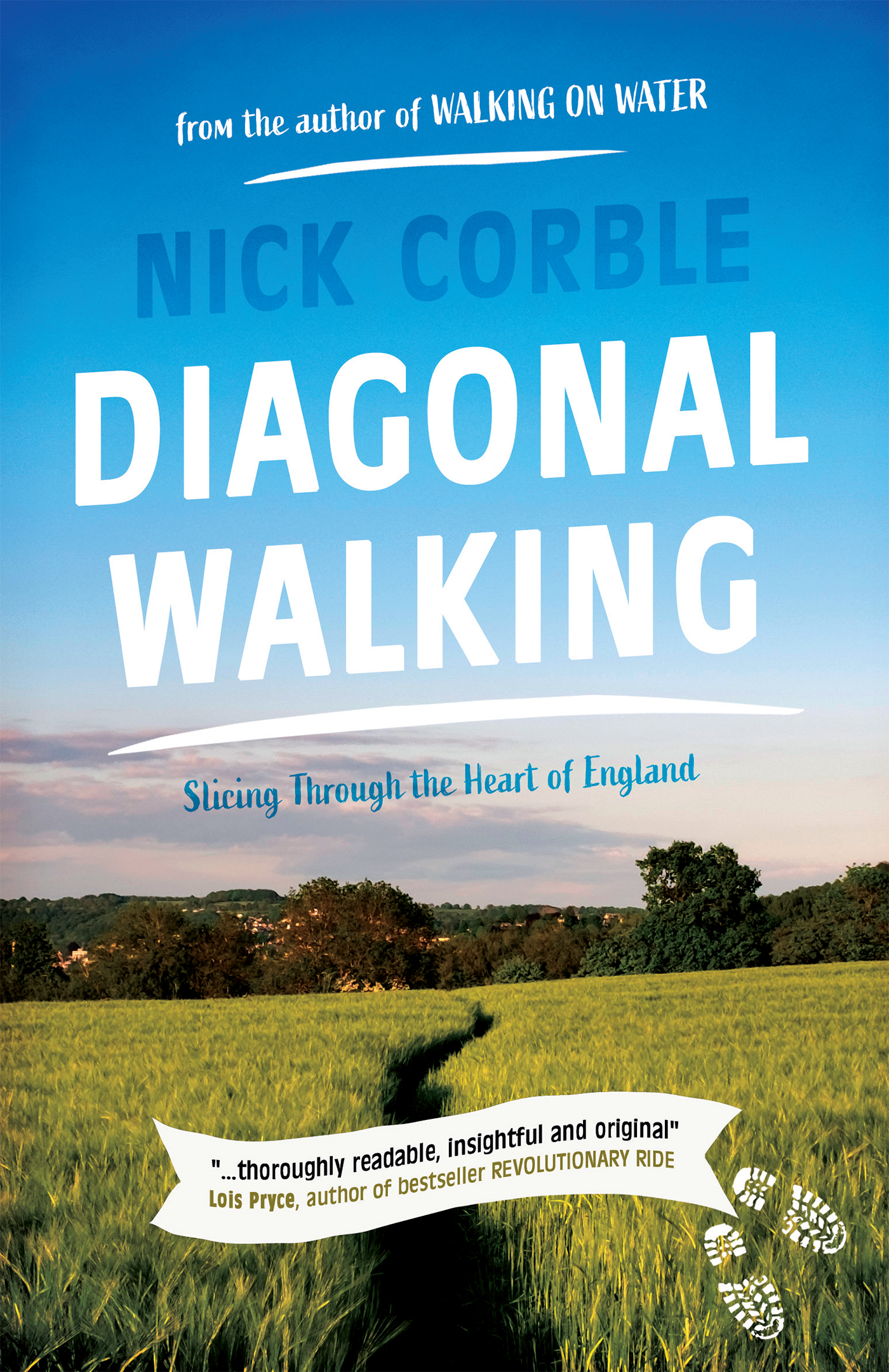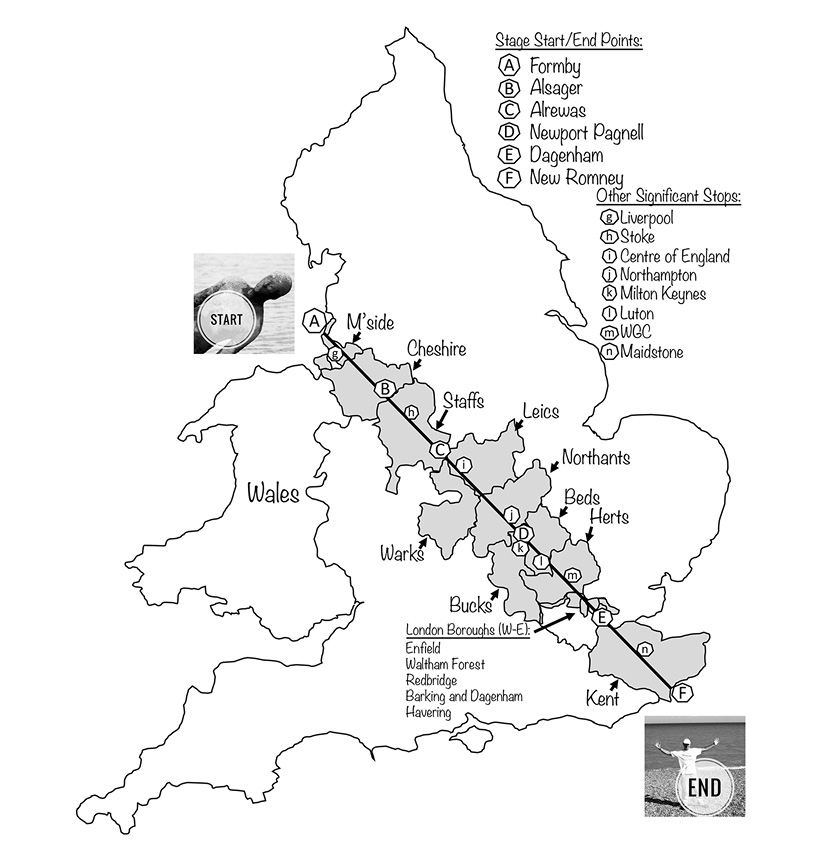Nick Corble has written over twenty-five books as well as over a hundred articles for the national and local press. Subjects have ranged from walking guides to the history of the English fairground, but he is perhaps best known for his works on the UKs inland waterways system. These include titles such as The Narrowboat Story , Britains Canals: A Handbook and, with Allan Ford, a guide to living on the canals called, appropriately, A Beginners Guide to Living on the Waterways .
His very first book, Walking on Water , published in 2000, covered a trip down the inland waterways system on a battered ex-hire narrowboat from the northern tip of the canal system down to the south. This not only described the highs and lows of the journey itself, but also attempted to gauge the mood of the nation on the eve of the millennium. Diagonal Walking replicates this approach, slicing through the nation, and trying to find out what makes it tick, this time on the eve of perhaps the most momentous event in its modern history.
This is not a book about Brexit, though: rather some reflections on England gathered through the long hot summer of 2018, during which Brexit dominated the headlines, providing the rumble of distant thunder the weather seemed reluctant to deliver. It is a look at England through the eyes of an ordinary man, as confused as everyone else. Neither a political commentator nor a professional pundit, and about to enter a fresh stage of his own life, Nick chose to re-engage with his country, to get out there and talk to people. To reconnect.
This is the story of what he discovered.
Copyright 2019 Nick Corble
The moral right of the author has been asserted.
Apart from any fair dealing for the purposes of research or private study, or criticism or review, as permitted under the Copyright, Designs and Patents Act 1988, this publication may only be reproduced, stored or transmitted, in any form or by any means, with the prior permission in writing of the publishers, or in the case of reprographic reproduction in accordance with the terms of licences issued by the Copyright Licensing Agency. Enquiries concerning reproduction outside those terms should be sent to the publishers.
Matador
9 Priory Business Park,
Wistow Road, Kibworth Beauchamp,
Leicestershire. LE8 0RX
Tel: 0116 279 2299
Email: books@troubador.co.uk
Web: www.troubador.co.uk/matador
Twitter: @matadorbooks
ISBN 978 1838599 003
British Library Cataloguing in Publication Data.
A catalogue record for this book is available from the British Library.
Matador is an imprint of Troubador Publishing Ltd
For walkers everywhere, but especially
to all my diagonal walkers
Contents
Introduction
This book is a record of my diagonal walk through the centre of England during the summer of 2018. Immediately, that sentence carries with it three caveats.
First, it was my walk not anyone elses, and as such what you are about to read is inevitably biased rather than objective, a record of a trek seen through my eyes alone. Second, it was conducted at a particular point in time, as it happens a particularly interesting point in time, when the country was teetering on the edge of potentially its biggest challenge for a generation.
This was no coincidence. Theres no getting away from it, the result of the Brexit referendum in 2016 acted as a powerful motivation to undertake my walk. I had done something similar twenty years before when my children were still young, when my intention had been to try to get a handle on what sort of country they were going to grow up in. With the referendum result I was no longer sure that the picture Id formed then still held. It was time to take the nations temperature once more.
The third and final caveat tucked away in that opening sentence is the word diagonal. The route I took was unique. To my knowledge no one has undertaken it before. Again, this was deliberate. I wanted my walk to be a one-off, following my set of rules. I also wanted to create something greater than simply a walk, to give birth to the notion of Diagonal Walking, not just a diagonal walk: to make it both multi-dimensional and multi-media. In particular, I wanted to use as many of the different channels now available on the internet as I could master in order to broaden the projects participation and ownership.
As I approached my sixtieth birthday I also wanted an adventure, to challenge some of my own preconceptions and to place myself outside my comfort zones. Finally, I wanted to write a travelogue about my experiences. Travelogues are funny things. Theres a long and distinguished history of them, not just in the UK but all over the world. Explorers like to share what happens to them and the thoughts they collect along the way, while the public also appear to like reading about them, to travel vicariously.
Before setting out on my walk, I immersed myself in some of the most well-known English (and British) travelogues. These included Bill Brysons Notes From a Small Island and its follow-up The Road to Little Dribbling , as well as Paul Therouxs The Kingdom By The Sea , the last written when the country was in the throes of another crisis, on that occasion the Falklands War. I also delved back in history and consulted J.B. Priestleys 1930s classic English Journey , as well as H.V. Mortons post-First World War tome In Search of England and, going even further back, William Cobbetts nineteenth-century horseback journey through England Rural Rides .
These all had a lot in common. They were snapshots of a moment in time, they were subjective and they were random. This book is all of those, too. I dont claim to be in the same league as others on this noble list, but I can claim to share their intentions. It was time for another look at England.
Diagonal Walking describes what I saw.
Nick Corble, 2018
Stage 1
Formby
to
Alsager
98.3 miles
224,124 steps
1
Staring Out to Sea
Sand dunes thick with marram grass clutched the edge of the shore like a giant bears claw. Below them lay a beach of pristine sand and beyond that, inevitably, the sea, with wind turbines peppering the horizon. It was approaching high tide, and the shallow waves were close to abandoning their twice-daily quest to connect with the shaggy dunes. The vista before me stretched like an extended concertina, the sea breathing in and out, exhaling a restorative briny air which, by then, I was ready to take a few lungfuls of.
That was when I remembered a tradition amongst coast-to-coast walkers. They take a pebble from their starting shore and carry it to their destination on the other side of the country. I wondered if this was something I should copy. After all, wasnt my walk also from coast to coast, even if it did follow a slightly unconventional route? Not for me the simplicity of taking the shortest line between two shores. No, I was going to be walking diagonally, from the north-west edge to the south-east corner, following a line passing through the very centre of England. Even so, I told myself, it was still from one coast to another.
There was a problem though. Not a pebble to be found. The beach at Formby Sands hasnt earned its name by accident, it is just that: sand. Mile upon immaculate mile of it. Besides, I knew from past experience that the beach at the other end of my walk, at New Romney near Dungeness in Kent, is nothing but stones. One option might be to take a bag of sand, but what was the point? It would only slip between the pebbles in an instant. Equally, why carry a pebble all the way across the country to deposit it somewhere where it would be completely unremarkable? Id already learned one thing in the hour it had taken me to get to this point: Id overpacked my rucksack. To add more weight seemed madness. Damn it, I resolved. This was my walk, my route, my project, and Ill live by my own rules.


